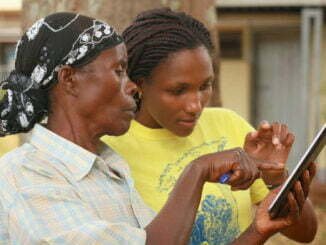
Kampala, Uganda | URN | There are mixed reactions among youths engaged in sports betting activities on a government proposal to charge a 15 per cent levy on winnings.
The proposal embedded in the Income Tax (Amendment) Bill 2017, splits the tax on betting activities between the betting companies and winners, relieving owners from solely shouldering the tax burden on winnings from gaming and pool betting.
As it stands, betting companies pay a 35 percent tax on the winnings. However with the new proposal, the companies will now pay 20 percent of the value of all winning bets and the winners will pay 15 percent of their prize.
This implies that the take-home package for the winners will most likely reduce. There are more than 200 licensed betting outlets across Uganda, majority of which are located in Kampala. According to the National Lotteries and Gaming Regulatory Board, an estimated 150 billion Shillings is spent on gambling annually.
State Minister for Planning David Bahati says that the proposal aims to discourage gambling, which, according to a recent research by the Economic Policy Research Centre (EPRC), has contributed to poverty and domestic violence in several homes as personal incomes are drained on gambling.
However, the proposal has been met with mixed reactions with punters labeling it unfair. One bettor, who only identified himself as Dustan, says that government should aim to tax the betting companies more instead of shifting the tax burden to individuals.
According to the Lotteries and Gaming Act, any person who fails to pay the tax due from him shall be liable to pay, in addition to the amount in default, a penalty equal to two percent of the amount for each week that the tax remains unpaid.
The Uganda government currently collects 30 billion Shillings in taxes from the games and lottery companies annually. But Dickson Tugume a bettor, who recently won 500,000 Shillings in betting, says the tax cannot deter them from gambling.
James Oluka, a resident of Kampala however welcomes the proposals sating that it is okay to tax gambling activities as long as the process does not leave loopholes for cheating.
Janet Nassanga, an operator of a betting outlet in Kampala is optimistic that the changes will relieve the companies, some of which are financially constrained. She says many times betting companies struggle to pay tax on winnings looking at the huge number of participants.
In neighboring Kenya, taxes from betting companies have tripled in two years according to a report by Kenya Revenue Authority Commissioner General John Njiraini. Kenya, which has only 25 licensed betting companies, has also tabled a bill proposing a tax charge on winnings at the rate of 20 per cent.
Like the case for Uganda, the philosophy for taxing betting, lotteries and gaming revenues in Kenya is partly to discourage gambling while also creating avenues for raising revenue.



